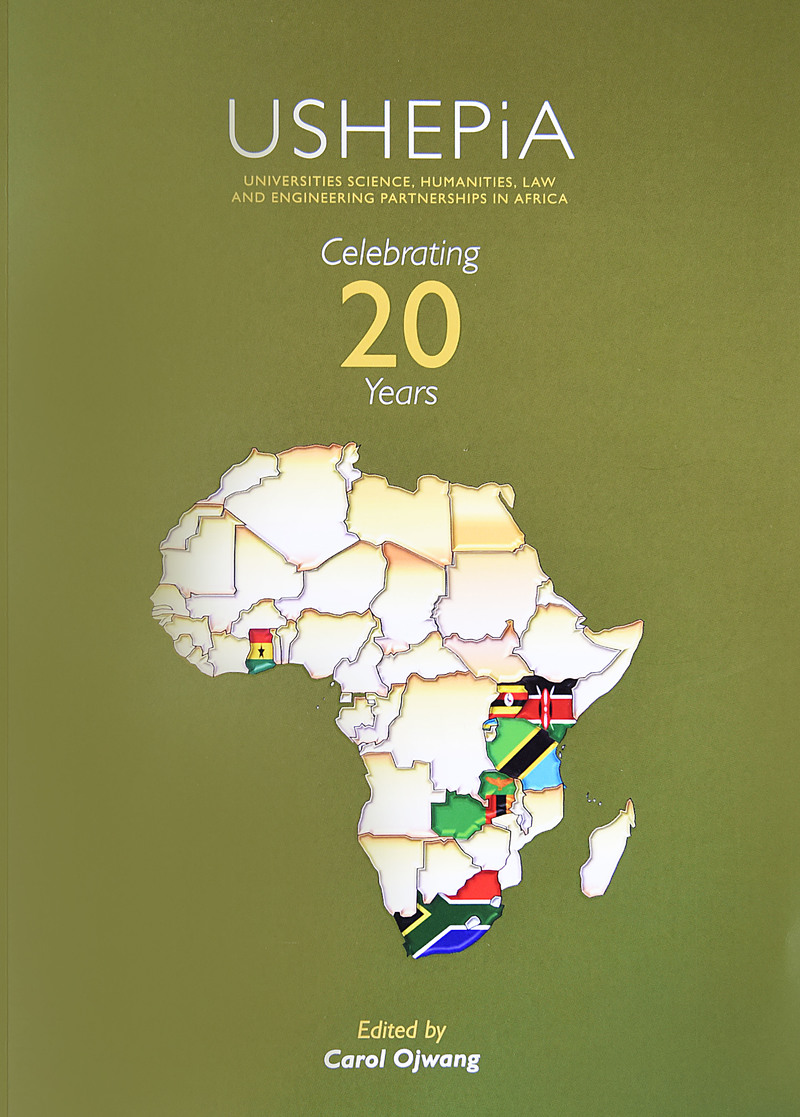USHEPiA 20-year publication launched on Africa Day
31 May 2017 | Story Yusuf Omar. Photo Robyn Walker.
Africa Day on 25 May was a fitting choice for the launch of a publication that commemorates 20 years since the establishment of the Universities Science, Humanities, Law and Engineering Partnerships in Africa (USHEPiA).
The publication, edited by Carol Ojwang of UCT’s International Academic Programmes Office (IAPO), documents the two decades since USHEPiA launched in 1996 with the explicit purpose of sharpening African universities’ response to the post-colonial economic challenges faced by newly independent countries in the 1960s and 1970s, and in post-apartheid South Africa in the 1990s.
USHEPiA brought together eight African universities, securing funding for the training and retention of new academic staff from these institutions and laying a foundation for a sustainable network of researchers on the continent. To date, the landmark programme has seen more than 70 fellows graduate with master’s and doctoral degrees. Many of these fellows have continued on an upward trajectory as senior scholars in African institutions.
The founder members were the universities of Botswana, Cape Town, Dar es Salaam, Nairobi, Zambia, Zimbabwe, Jomo Kenyatta University of Agriculture and Technology and Makerere University. More recently, the universities of Ghana and Rwanda have joined the ranks, replacing the universities of Botswana and Zimbabwe and the Jomo Kenyatta institution.
Launching the publication, Professor Mamokgethi Phakeng, UCT’s deputy vice-chancellor for research and internationalisation, said: “On a day such as this one, where we celebrate Africa Day, we have an opportunity to celebrate who we are as Africans.”
And it was appropriate to celebrate the launch of the USHEPiA publication on this day, too, said Phakeng, speaking at a colloquium on women and work that was held at UCT’s Centre for African Studies Gallery.
“It’s a flagship of our research capacity development programmes in Africa. It’s a very successful programme, so successful that when it started it was started by external donor funding, but when that donor funding came to an end, the universities involved decided to keep going with it because of what it was producing.
“We celebrate the success of the collaboration of African institutions. There’s sometimes a belief that African institutions can’t collaborate, and USHEPiA is an example of what we can produce when we work together as African institutions.
“If you read the publication you’ll see there are a lot of academics who got their master’s and doctoral degrees through the USHEPiA programme.”
All those academics remained in Africa, she said. That was the key, she added. Often people left the continent to get their senior degrees and remained overseas. Phakeng was happy that USHEPiA was providing a means to stem this brain drain.
“It’s not an academic publication, but it’s a publication that tells the story of USHEPiA.”
Why this kind of narrative publication instead of an academic one that showcased USHEPiA’s research? That would be another challenge worth tackling, she said.
But a narrative publication was important because “this is the model that we want to replicate, so we want to see … what made it work, what were the challenges and how did they deal with them?”
Moreover, many years from now, it will continue to tell the story of an intra-African collaboration, said Phakeng.
“Our children and our children’s children will have this and say, yes, it was possible. So let it be known that Africans can collaborate and USHEPiA is an example of that.”
 This work is licensed under a Creative Commons Attribution-NoDerivatives 4.0 International License.
This work is licensed under a Creative Commons Attribution-NoDerivatives 4.0 International License.
Please view the republishing articles page for more information.










